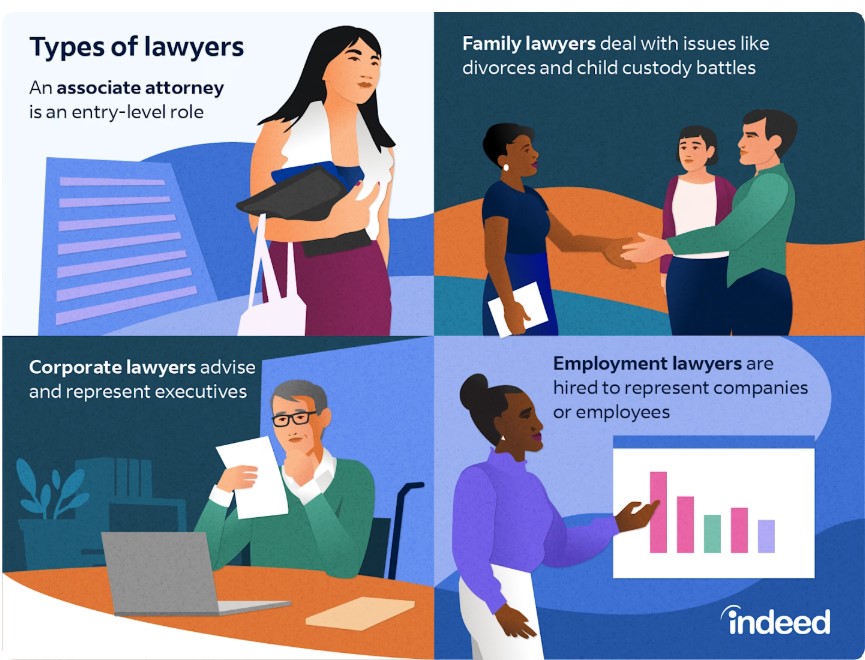Exploring Legal Services Jobs: Career Paths, Roles, and Opportunities
The legal services industry forms the foundation of a functioning, fair society
Legal careers extend far beyond courtroom dramas—they involve everything from corporate compliance and intellectual property to mediation and legal research. As our world becomes increasingly interconnected and regulated, skilled legal professionals are more valuable than ever.
This guide explores the many types of legal jobs, their benefits, and the opportunities available to those considering a career in law.
⚖️ What Are Legal Services Jobs?
Legal services jobs involve any role that supports the creation, interpretation, enforcement, or administration of the law. These roles can be found in:
Law firms
Corporations (in-house legal departments)
Government and judiciary
Non-profits and NGOs
Academic and research institutions
Legal professionals work to advise clients, ensure legal compliance, defend rights, settle disputes, and uphold justice in both civil and criminal matters.
✅ Benefits of a Legal Career
- Prestige and Trust
Lawyers, judges, and legal professionals often hold respected positions in society. Their work has profound impacts on people’s rights, property, freedom, and livelihoods. - Wide Range of Specialties
You can choose from criminal law, corporate law, environmental law, intellectual property, civil rights, and more. There’s a legal path to match nearly every interest. - High Income Potential
While salaries vary, many legal roles—especially in corporate, tech, or international law—offer six-figure incomes. Even support roles like compliance or paralegal work can pay well with experience. - Continuous Learning
Law evolves with society. Staying current on statutes, case law, and precedents fosters lifelong growth and keeps the job intellectually stimulating. - Meaningful Work
Legal professionals often advocate for the voiceless, defend rights, or shape public policy. It’s a career where you can genuinely make a difference. - Diverse Work Environments
From courtrooms and boardrooms to remote legal research roles, the field offers many types of workplaces and work styles, including hybrid and freelance options.
🧑⚖️ Common Types of Legal Services Jobs
- Lawyer / Attorney
Handles legal advice, contract drafting, negotiations, and court representation. Most lawyers specialize in fields like:
Criminal Law
Corporate Law
Family Law
Immigration Law
Intellectual Property
Environmental Law
Education: JD/LLB + bar license
Employers: Law firms, corporations, public sector
- Paralegal / Legal Assistant
Supports attorneys by organizing case files, conducting legal research, and preparing documents.
Education: Associate degree or paralegal certification
Employers: Law firms, insurance companies, courts
- Judge / Magistrate
Presides over trials and hearings, interprets law, and delivers rulings. Typically appointed after years of legal practice.
Education: Law degree + judicial appointment
Employers: Federal or state courts
- Legal Consultant
Offers expert legal advice in specialized areas—often on contracts, corporate regulations, or international law.
Education: Law degree + relevant experience
Employers: Corporations, consultancies, private practice
- Legal Researcher / Legal Analyst
Analyzes laws, judicial decisions, and legal developments to support policy-making, litigation, or academic projects.
Education: Bachelor’s or law degree
Employers: Think tanks, law schools, legal publishers
- Compliance Officer
Ensures companies follow legal regulations and internal policies, especially in sectors like finance, healthcare, and energy.
Education: Law, business, or finance background
Certifications: CCEP, CRCM
Employers: Corporations, banks, hospitals
- Court Reporter / Legal Transcriptionist
Creates accurate, word-for-word transcripts of legal proceedings for use in legal reviews and appeals.
Education: Certification in transcription or stenography
Employers: Courts, legal transcription firms
- Legal Secretary
Manages day-to-day administrative operations in legal offices—handling correspondence, scheduling, and documentation.
Education: High school diploma + clerical or legal training
Employers: Law firms, legal departments
- Mediator / Arbitrator
Facilitates dispute resolution outside of courts. Mediators assist in negotiation, while arbitrators issue binding decisions.
Education: Background in law or conflict resolution
Employers: Courts, ADR firms, freelance
- Public Defender / Legal Aid Attorney
Provides legal representation to those who can’t afford a private lawyer.
Education: Law degree + bar admission
Employers: Government agencies, nonprofit legal aid organizations
📈 Legal Careers in the Future
Legal services are evolving, thanks to:
Legal Tech & AI: Automating document review, e-discovery, and case management
Globalization: Cross-border transactions and international compliance
Cyberlaw: Privacy, data protection, and tech regulations
Remote Legal Work: Virtual consultations, court appearances, and legal outsourcing
🏁 Final Thoughts
A career in legal services is more than just a job—it’s a commitment to justice, ethics, and social progress. Whether you’re drawn to high-stakes litigation, quiet research, or public advocacy, the legal field offers countless opportunities to learn, grow, and contribute meaningfully.
It’s a field where your skills, dedication, and voice can change lives—and sometimes, the world.
❓FAQs
1, Do I need a law degree to work in legal services?
No. Many roles—like paralegals, compliance officers, and mediators—don’t require a JD or LLB.
2. Are legal jobs stressful?
Some can be, especially litigation roles. However, many find the intellectual challenge and societal impact deeply rewarding.
3. Can legal professionals work remotely?
Yes. Legal research, compliance, contract drafting, and even virtual court appearances allow for hybrid or remote work.
4. What are the fastest-growing areas in legal services?
Compliance, cybersecurity law, legal tech, and mediation are all rapidly growing.
5. How do I start a legal career?
Explore roles that match your interests, earn relevant qualifications, and consider internships or volunteering in legal settings.
